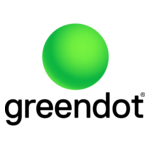Blockchain and Bitcoin round-up: 12 January 2018
Fourth one in a row. Following the blockchain and Bitcoin round-ups from yesterday (11 January) and 10 January and 9 January, here’s more brief news – and all about Asia this time. Featuring Cobinhood, JCB, Currency Port and Republic Protocol.
Taiwan-based start-up Cobinhood, a zero-trading-fee cryptocurrency trading platform, has announced the addition of 14 new coins. The team also announced a voting system that will add new tokens bi-weekly. The coins being added are Augur (REP), Basic Attention Token (BAT), EOS (EOS), Ethos (ETHOS), Game (GTC), Golem (GNT), Naga Coin (NGC), Omisego (OMG), Qtum (QTM), Santiment (SAN), SophiaTX (SPHTX), Status Network (SNT), TenXPay (PAY) and Tron (TRX).
Cobinhood says its proprietary order matching engine can process millions of orders with sub-millisecond latency. It stores most the crypto assets deposit in an offline multisig vault, which requires five out of eight geo-distributed hardware security modules to open. During its ICO in 2017, the firm distributed 244,773,856 COB to 17,433 contributors totalling 45,254.9 ETH. Launched in 2017, Cobinhood was founded by Popo Chen.
 Japanese credit card firm JCB has entered into an agreement with Tokyo-based Currency Port, a “heterogeneous distributed ledger” (a middleware API platform) to conduct joint research for interconnection and distribution between both parties.
Japanese credit card firm JCB has entered into an agreement with Tokyo-based Currency Port, a “heterogeneous distributed ledger” (a middleware API platform) to conduct joint research for interconnection and distribution between both parties.
JCB says at present distributed ledgers have “diverse different standards” and it wants “interoperability” between multiple blockchains. The idea, according to Nikkei Asian Review, is to share their excess capacity, resolving issues that arise from heavy traffic on a single ledger. They will initially create a mechanism that connects about seven to ten domestic blockchain ledgers.
Over in Singapore, Republic Protocol, a new blockchain project with ties to Kyber Network and others, has announced it will be building a decentralised dark pool for the trading of crypto assets. Taiyang Zhang, CEO of Republic Protocol, says a dark pool “enables institutional traders to protect their hand from public view while not adversely affect market prices when they are buying and selling large orders” – and its plan is to bring “the inherent security of the blockchain” to such a concept.
The company will first build the Republic Terminal, a DApp (decentralised app) for interacting and trading BTC, ETH and ERC20 with the underlying Republic Protocol. This terminal, along with all the other components of Republic are open-source. Mining will also be implemented to discover orders on the distributed hidden order book. Miners are paid in the tokens of the platform called REN, which is a fee traders must stake and transfer for their usage of the protocol. The order matching process is decentralised.










































